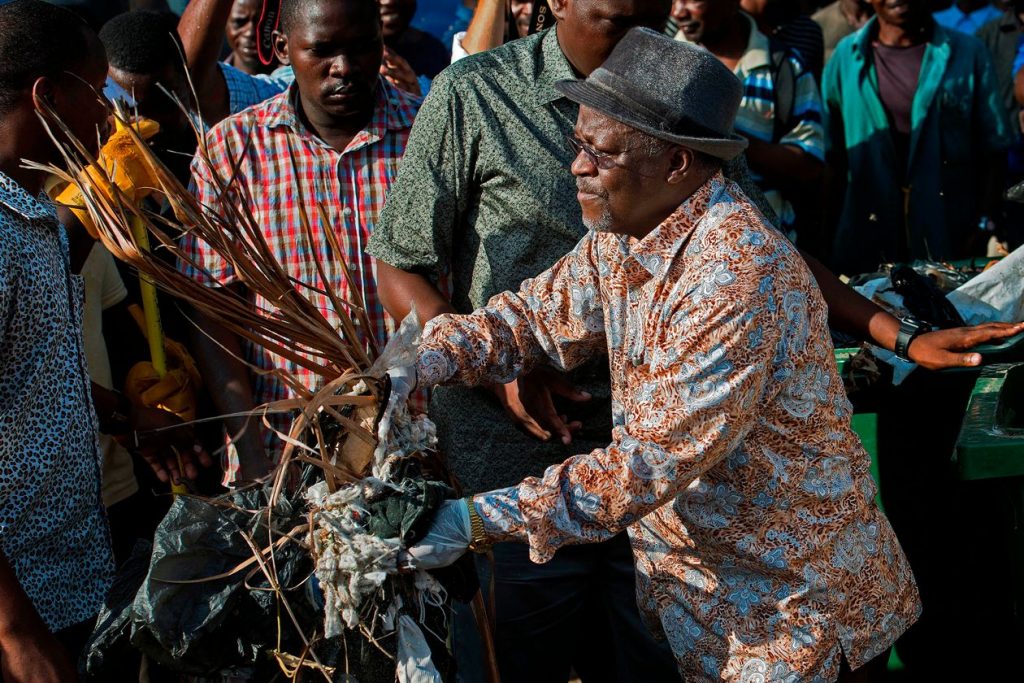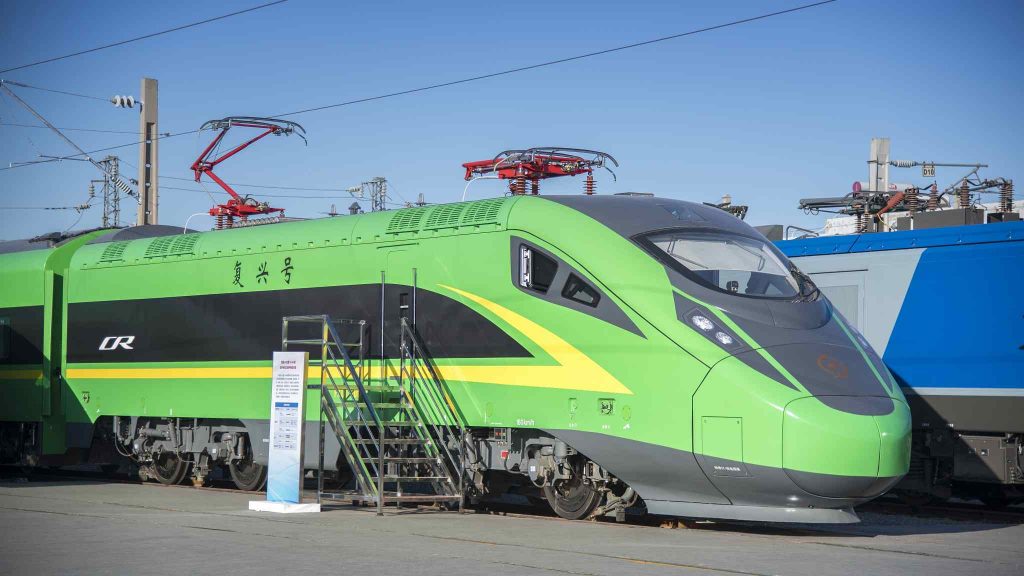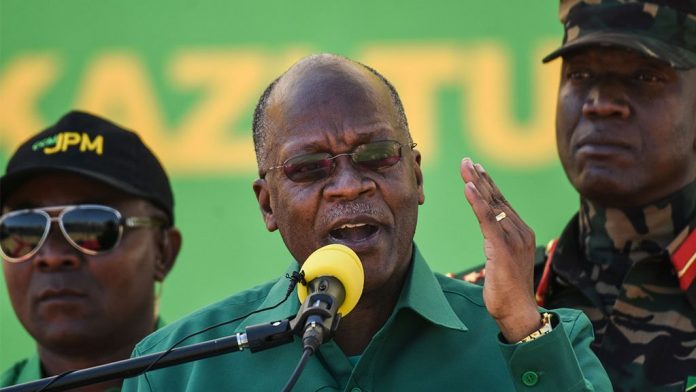In 2017, one president shocked the world when he issued an order banning all public servants in his country from traveling abroad.
But that head of state was not from Singapore, New Zealand, Switzerland, South Korea or any developed nation where prudent utilization of public funds and accountability reigns supreme.
He was from Tanzania. And his name is John Pombe Magufuli. Symbolic of his six year rule, that move alone saved the country $470 million annually according to the Central Bank of Tanzania.
Before Magufuli came to power in 2015, after the tightest election in the country’s history, Tanzania’s economy had stuttered from the hazy days of socialism under Julius Nyerere to the corruption laden rule of Ali Hassan Mwinyi and Benjamin Mkapa. This large country, half the size of Western Europe, had been stuck pottering around poor economic policies and filled with dilapidated infrastructure.
Tanzania’s diamonds and gold was only a footnote in the country’s vast list of resources as foreign companies such as Barrick Gold raked in over 90% of the profits leaving the government to rely on tourism and agriculture for much of its revenues.
But just like a flash, all that changed in 2015 with the arrival of John Magufuli to the presidency.
Background
Magufuli was born in Chato, along the shores of Lake Victoria in the north-west, rising from a peasant to an academic and later on a politician.
Magufuli said his modest background inspired his own desire to work for the Tanzanian people. “Our home was grass thatched, and like many boys I was assigned to herd cattle, as well as selling milk and fish to support my family,” he said during his 2015 campaign.
“I know what it means to be poor. I will strive to help improve people’s welfare,” he added.
After school he worked for a year as a senior school maths and chemistry teacher before returning to further education. He worked for a few years as an industrial chemist before resigning in 1995 to run for the parliamentary seat in his own Chato constituency.
After taking that seat, he quickly rose through the ranks to be appointed deputy minister for public works.
His no-nonsense style, focused on efficiency and results, was quickly evident. In his first year in the job he succeeded in steamrolling through the building of a long-delayed road earning the nickname “the bulldozer.”

The Magufuli way
In his first year in office, Magufuli earned worldwide acclaim for cancelling national celebrations and allocating the funds to a national clean up in which he participated. He also banned foreign trips for public servants, moves that inspired the hashtag #WhatWouldMagufuliDo
While some posts mocked the president’s austere policies, others called for more African leaders to emulate his leadership style.
In 2017, Kenyan professor Patrick Lumumba went so far as to call for the “Magufulication” of Africa during an address at the University of Dar es Salaam.
Magufuli’s administration also introduced new laws intended to increase revenue from multinational firms.
In 2017, Acacia Mining, a subsidiary of Canadian parent company Barrick Gold, was slapped with a $190 billion tax bill over royalties the government said it owed, though it denied any wrongdoing.
As part of the settlement, Barrick eventually agreed to pay $300 million after buying out Acacia, and a new operating company, Twiga Minerals, was formed with the government owning 16% of the joint venture. Barrick and the Tanzanian government also agreed to the sharing of unspecified future economic benefits from the mines on a 50-50 basis.
Tanzania’s gold production increased by 10% in the last half a decade, and is now Africa’s fourth-largest gold producer after South Africa, Ghana and Mali.
Magufulinomics
Through his no non-sense administration, Magufuli has steered what was once a resource rich but sluggish economy to a level where it is challenging the region’s economic powerhouses.
Across all his presidency, Tanzania recorded an average economic growth of 7.1%, the second fastest on the continent after Senegal and eight globally, catapulting the country’s status from a Least Developed Country to a lower middle income economy.
But it’s not just the gross domestic product (GDP) that soared.
Inflation fell to 3.3% in 2019, from 7.8% in 2015 due to an improved food supply. The Tanzanian shilling has also remained fairly stable in the last five years exchanging at an average of 2,290 to the dollar, compared with 2,263 in 2018.
The African Development Bank’s Country Policy and Institutional Assessment cites Tanzania’s economic growth as a result of “sustained political stability and Magufuli’s administration ambitious development agenda.”
Aside from the economic governance, President Magufuli fast tracked the shifting of the country’s capital to Dodoma from the commercial center Dar es Salaam, a move that was decreed more than three decades ago but never fully implemented.
Tanzania has also diversified its economy in the last five years, evidenced by employment in agriculture declining from 71.4% of total employment in 2008 to 66.3% in 2018, while employment in industry increased to 7.1% from 5.7% and employment in services to 26.6% from 22.9%.
Despite its strategic location, Tanzania lacks access to the development finances required to bridge the enormous infrastructure gap that comes with its size.
But the government has tried to bridge the gap. President Magufuli pursued mega projects including constructing the Mwalimu Nyerere Hydroelectric power project in Rufiji, a new standard gauge railway, and revival of the national carrier, Air Tanzania.
Remarkably, Tanzania’s railway project to be launched in 2022, features Sub-Saharan Africa’s first bullet train-rail line linking Rwanda with Tanzania’s port in Dar es Salaam. The project has cost the country $1.3 billion over the first phase that included a 400 kilometer track from Dar es Salaam to Dodoma.

Neighboring Kenya paid triple the figure – $3.6 billion, to builds its own standard gauge railway that runs over a similar length of 400 kilometers from the outskirts of Nairobi to Miritini near the coastal city of Mombasa.
After initially choosing to join Kenya’s SGR project, Rwanda’s government made a U-turn and agreed to pay $1.2 billion to extend Tanzania’s railway line to Kigali. Uganda is also in talks to build an oil pipeline with Tanzania to transport its huge oil deposits through the port of Dar es Salaam.
Following its revival in 2017, Air Tanzania is set to compete with the struggling Kenya Airways and Rwandan Air for a share in the region’s commercial air transport sector.
Democracy faltered under Magufuli
But economic progress under Magufuli’s reign has come at a cost to its democracy and freedoms. Once a beacon of stability in a volatile region, the country was plunged into chaos, following a contested election in October in which President Magufuli was unsurprisingly declared the winner.
Security forces in Tanzania clamped down hard on political dissent killing dozens, and a nationwide internet ban was imposed on Election Day. Opposition leader Tundu Lissu himself spent the last three years in self-imposed exile after he survived an assassination attempt.
Reporters Without Borders have documented numerous arrests of journalists in Tanzania, and the government has shut down space for public debates on its socioeconomic policies. State media were also banned from covering live proceedings of parliament, a move the government justified as a cost cutting measure though civil societies say it denies citizens the right of information to what their lawmakers are discussing.
Then there was the management of the coronavirus pandemic.
When Covid-19 arrived in Tanzania, President Magufuli did not believe in people staying at home. He wanted them to get into the churches and mosques to pray.
“Coronavirus, which is a devil, cannot survive in the body of Christ… It will burn instantly,” Magufuli, a devout Christian, pronounced from the altar of a church in the capital, Dodoma.
Since June 2020, when he declared the country “Covid-19 free”, the president, along with other top government officials, mocked the efficacy of masks, doubted if testing worked, and teased neighbouring countries which imposed lockdowns.
But Magufuli’s approach has been defended in some quarters as being “prudent and realistic”, cushioning his developing country from the economic effects of the pandemic.
Whatever the actual state of affairs, American multinational firm Citi, in its published Africa Economics Strategy Weekly, says the reality in Tanzania seems to be that the hospitals have not been overwhelmed by COVID-19 cases.
According to the World Bank, despite the pandemic, Tanzania’s economy grew by 2% in 2020 (the fastest on the continent) and Mara Warwick, World Bank country director for Tanzania, Malawi, Zambia and Zimbabwe projects economic output will continue soaring this year to 5.3%

